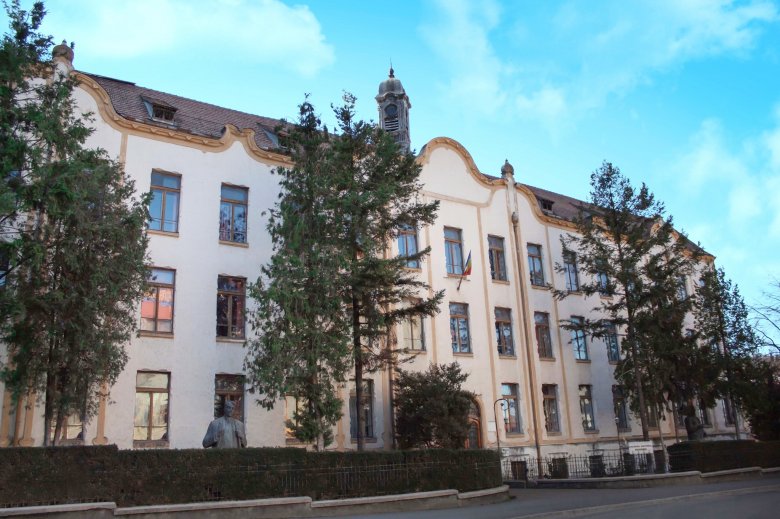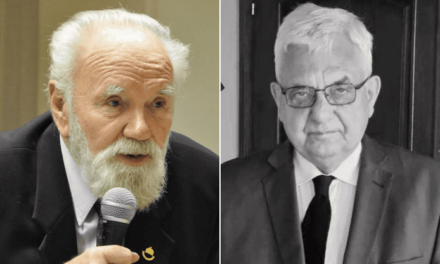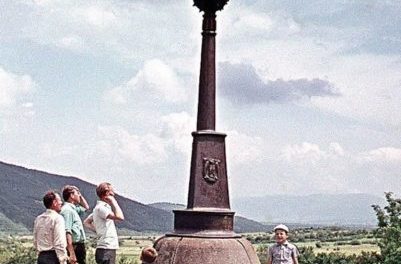The Zila prosecutor's office initiated criminal proceedings against the two Reformed bishops, István Csűry, head of the Királyhágómellék Reformed Church District and Béla Kató, head of the Transylvanian Reformed Church District, in the case of the return of the Wesselényi College building in Zila, reported the Romanian Hungarian news portal Maszol . According to István Csúry, this would hinder the restitution procedure.
According to Maszol, the prosecutor's office launched an "ex officio" investigation, in the framework of which
the two church leaders are suspected of document forgery, bribery and misuse of forged documents.
István Csűry told the portal that during Friday's interrogation, the prosecutor "started hard" and primarily inquired about a document issued in 1911, which can be found in the archives of the Transylvanian church district. The controversial document is the decree of the Ministry of Culture of the Hungarian government at the time on how to manage the land registration of church schools, so it settles a legal and technical issue,
which shows that the schools were ecclesiastical institutions.
In accordance with the land registration practice of the time, the owner of the school buildings was not the church, but an internal unit of the church. The disputed document has already been found in the case of Mikó Székely College in Sepsiszentgyörgy, which was returned to the Reformed Church and then nationalized.
"In response to the prosecutor's question, I said that we do not have an original copy of this because we did not exist in 1911, the Reformed Church District of Királyhágómellék was established after 1920, after the Trianon decision," explained István Csűry, adding that
the Attorney General himself was a bit embarrassed by this.
The bishop said that at Friday's hearing, questions were asked about this one point of accusation, and the other points of suspicion were not addressed. István Csúry highlighted:
the prosecutor admitted that it was an investigation that they "had to do ex officio" and said that he "gave himself away that they were being made to investigate". According to István Csűry, the prosecutor's interrogation "can also be interpreted as a flash of power".
István Csűry believed that the prosecution created a criminal case out of the case in order to delay the civil trial of the Wesselényi college.
"With this, they stop the civil lawsuit, which is on the right track, because the Supreme Court was also positive towards us, and now they had to resort to another means to prevent the restitution," the bishop told Maszol.
He also added that "the controversial document that they are sniffing after" was also found in the case of the Mikó College in Sepsiszentgyörgy, the original copy of which is in the archives of the Transylvanian Reformed Church District.
He considers it an interesting precedent that before their summons, in July, two people from the Zilah police appeared in four places at the same time without prior notice: at the lawyer of the bishopric of Kárálhágómlék, at the bishopric of Nagyvárad, at the archives of the Transylvanian church district, and at the dean's office of Zilah. The sought-after and disputed document is actually a decree of the Ministry of Culture of the Hungarian government at the time on how to handle the land registration of church schools, so it settles a legal and technical issue, which reveals that the schools were church institutions.
"Lately, I have to go to the prosecutor's office more than anywhere else," Csúry told Maszol, adding:
"I find it very unfriendly that two Reformed bishops are cited in Romania on the same day, at the same hour, before the prosecutor's office, they didn't even dare to do this during Ceaușescu's time".
The building of the Református Wesselényi College in the center of Zilah was taken from the Reformed Church by the communist Romanian state during the 1948 nationalization. The patina building was reclaimed in 2003 by the Királyhágómelléki Reformed Church District. However, the restitution committee in Bucharest rejected the restitution citing certain deficiencies. The church district challenged the rejection decision at the Cluj District Court, but lost the case at first instance. Following his appeal, the Romanian Supreme Court sent the case back to the court of first instance in October 2019.
Speaking to Krónika at the time, István Csűry assessed the decision as positive and believed that the Supreme Court had said: the Cluj-Napoca court did a superficial job and did not take into account KREK's precise documents.
"I have no doubt that something would be missing and they would prove something other than that it is our rightful property"
- he said to the newspaper at the time.
The fact that Endre Ady studied and graduated from this institution between 1892 and 1896 gives symbolic value to the Zilahi Református Wesselényi College. The reclaimed patina school building was built after Ady's studies, between 1904 and 1906.
The former building of the Reformed college is now the home of the Silvania High School, considered the most prestigious school in Szilágy County, with classes in Hungarian as well.
MTI / maszol.ro / kronikaonline.ro
Cover image: The patina building of the Wesselényi college in Zila • Photo: Facebook/Colegiul Național "Silvania" Zalău













